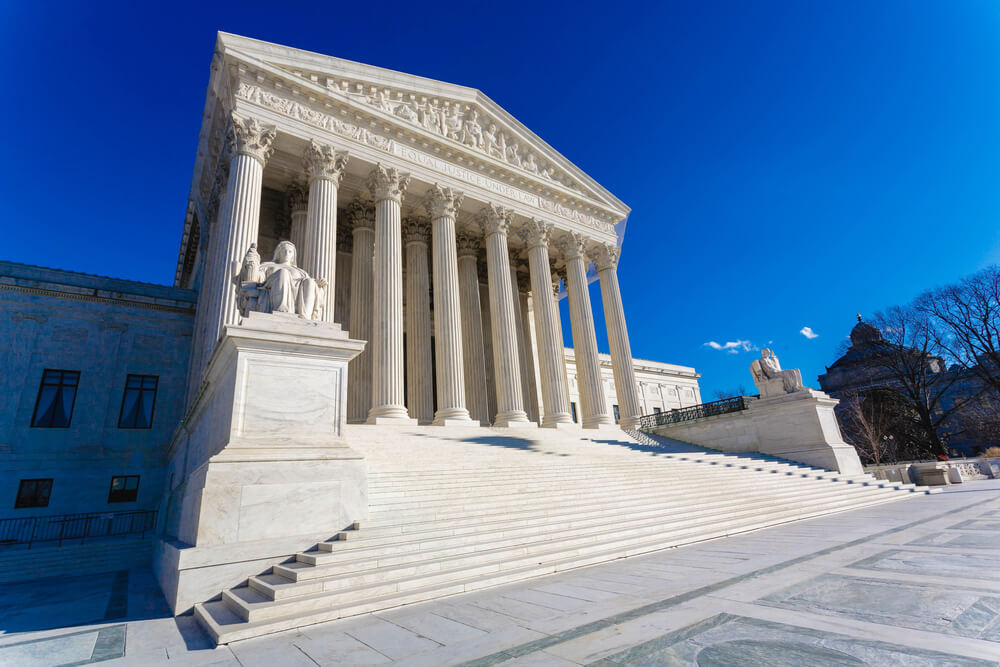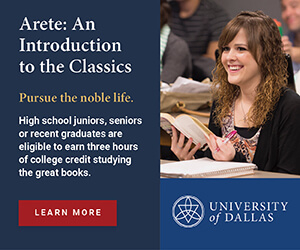The United States Supreme Court recently announced that it would hear arguments from the Little Sisters of the Poor in their case against the Commonwealth of Pennsylvania. This will be the third time the Little Sisters have gone before the Supreme Court in their effort to gain an exemption from the federal mandate that requires employers to provide contraceptives, sterilizations, and abortion-causing drugs in health plans.
The Little Sisters of the Poor is an order of religious founded in 1839 by St. Jeanne Jugan. Their mission is to care for the poor and the elderly, and they currently serve in more than 30 countries.
So why is it necessary for religious sisters to repeatedly argue their case in front of the Supreme Court? Diana Verm, Senior Counsel for the Becket Fund, recently stopped by Morning Air® to explain why the Little Sisters are back in court, and why she is hopeful that this will be the last time.
In 2012, the Department of Health and Human Services issued a mandate that required all employers to provide contraceptives, sterilizations, and abortion-causing drugs in health plans. The mandate was challenged by a number of religious companies and organizations, on the grounds that it restricted their religious freedom by forcing them to act against their religious beliefs. In 2014, the Supreme Court ruled in Burwell vs. Hobby Lobby that employers with religious objections can opt out of providing contraception coverage under the Affordable Care Act. However, this exemption was so narrow that even the Little Sisters of the Poor did not qualify for the exemption. That’s how the Little Sisters wound up at the Supreme Court for the first time.
“The Supreme Court heard the Little Sisters case in 2016,” Verm explained. “They protected the Little Sisters and told the government to find a solution that would work for everyone. The government did that. It exempted the Little Sisters from the HHS mandate, and all other religious objectors. But Pennsylvania and New Jersey sued to take away the Little Sisters’ protection. So, it seems crazy that you would need the Supreme Court to step in and say that the government doesn’t have to use nuns to get contraceptives to women. But that’s where we are.”
Verm expressed that she is hopeful that this will be the last time that the Little Sisters will need to argue in front of the Supreme Court, as this case will also determine the outcome of cases with other states that are trying to compel the Little Sisters to provide contraception coverage.
She explained that in the case going before the court, “Pennsylvania is joined by New Jersey, and there’s another case out of California involving California and about 18 other states. So there’s a bunch of states in this case. And if the Supreme Court rules it will be an answer for all of those states. So hopefully this will be the last time.”
If the Supreme Court rules in favor of the Little Sisters, that could be the final victory in a years-long battle. But Verm pointed out that if the Supreme Court does not rule in their favor it could have ramifications for many other religious organizations.
Verm said, “This case is also important because Pennsylvania has gone one step further, saying that the government has to force the Little Sisters to pay for contraceptives. So that’s an argument that could endanger all religious exemptions. And that’s not a society that promotes peace and justice that we want to live in.”
While the ins and outs of legal cases can be complicated, Verm stressed that cases like the ones the Little Sisters of the Poor are fighting are vitally important, because they have ramifications for many religious people throughout the United States who are trying to serve others in accordance with their faith.
“It’s helpful for people to pay attention to these cases,” she said. “The Little Sisters didn’t want to fight the federal government. They don’t want to fight the states. They want to serve the most vulnerable in our society, in accordance with their faith. The ruling from the Supreme Court that the government has to protect them would allow them to do that.”
Listen to the full conversation below:
Morning Air can be heard weekdays from 6:00 – 9:00 a.m. Eastern/3:00 – 6:00 a.m. Pacific on Relevant Radio® and the Relevant Radio App.


